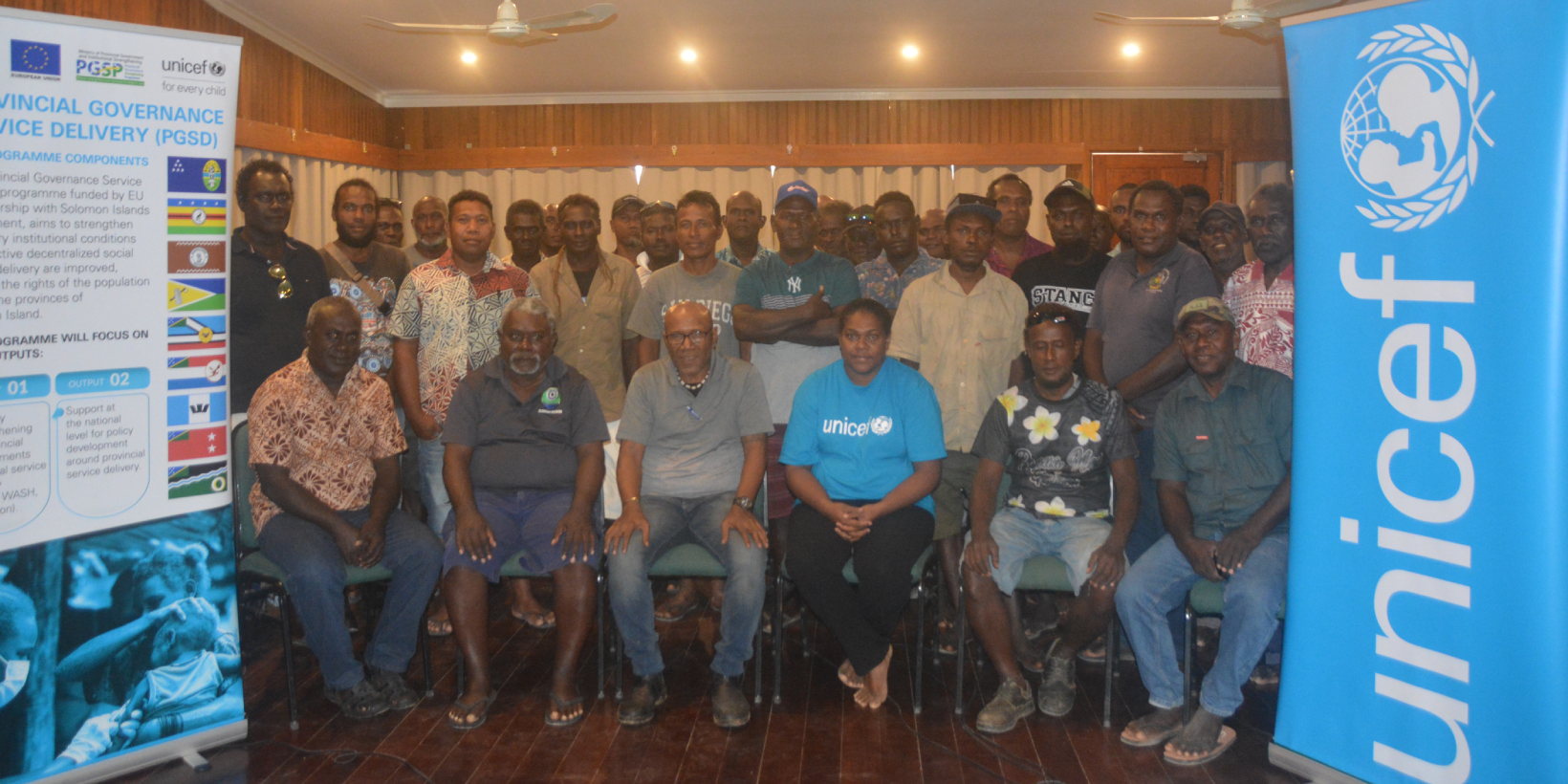AN urgent need for stronger decentralization, better coordination, and improved service delivery mechanisms at the provincial level had been highlighted during an UNICEF Capacity Building Workshop in Gizo, Western Province last week.
The three day workshop was held on Monday 21 October.
Speaking at the workshop the Western Provincial Secretary (PS) Patrick Toiraena stressed the current system continues to disadvantage provinces, which remain limited in authority and resources despite carrying much of the public’s expectations.
The workshop, supported by the European Union, UNICEF, and UNDP, focused on strengthening the province’s capacity to improve service delivery across key sectors including Water, Sanitation and Hygiene (WASH), Education, and Health.
All the Ward Development Committees (WDC) Chairperson and representatives attended the five days workshop.
PS Toiraena said, one of the biggest challenges provincial governments face is their restricted role under the current administrative structure.
“Provinces are recognized as agents rather than partners,” he explained.
“Even though some functions like health and education are devolved, the control of resources remains centralized, with the bulk of funding still held at ministerial level.” he said.
He said this centralization continues to create serious gaps in service delivery, especially in remote areas where the provincial government is the first point of contact when crises occur.
“When a cyclone, tsunami, or local issue arises, people turn to the province for help — but we are often without the necessary resources. The degree of disconnect is real,” Toiraena emphasized.
The PS noted that all nine provincial premiers have called for more powers to be devolved under the recent Provincial Government Act (PGA) 2025 Review in Honiara, especially in health, education, and the productive sectors.
He said the proposed revenue-sharing scheme under the review would be a step forward in giving provinces the resources they need to manage essential services and infrastructure.
Toiraena also raised concern over the state of basic services, describing the latest data for WASH, health, and sanitation in Western Province as “a rather bleak reading.”
“It will require significant resources and commitment to bridge these gaps,” he said.
Despite the challenges, Toiraena acknowledged the progress made through the Provincial Governance Strengthening Programme (PGSP) and the Provincial Capacity Development Fund (PCDf), which he said have made a difference in rural communities since 2009.
“While its impact may be smaller compared to the Constituency Development Fund (CDF), the PCDf ensures value for money and proper utilization of resources,” he said.
The PS also commended the UNICEF/UNDP/EU initiative, noting that it addresses one of the key weaknesses in provincial governance — lack of coordination between sectors.
He said the training will help officers improve in planning, project formulation, and other technical skills essential for effective service delivery.
BY ULUTAH GINA
Solomon Star Gizo








